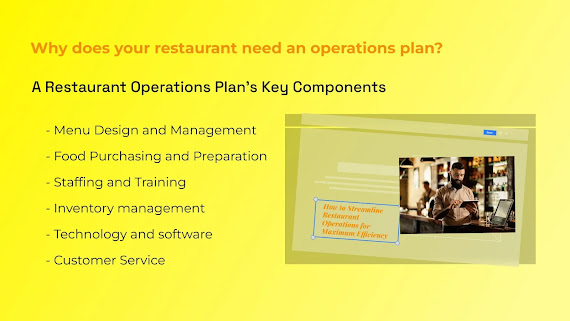Crafting a Robust Restaurant Business Plan for 2024: A Comprehensive Guide
Opening a restaurant demands careful planning. A restaurant business plan serves as a vital roadmap, providing clarity on strategy, resources, and potential challenges. This blog, suitable for both seasoned owners and new entrepreneurs, guides you through the intricacies of creating an effective restaurant business plan in 2024.
The Role of a Restaurant Business Plan
A restaurant business plan is not just a guideline but a roadmap for development. Given the restaurant industry's 20% success rate, where 80% fail within the first five years, a well-structured plan is crucial.
Importance of a Business Plan
Every venture, including restaurants, requires a business plan for clarity. It forces self-examination of the business model, value proposition, and prospects for success. A good business plan fosters accountability, enabling early identification of potential issues.
Features of an Effective Restaurant Business Plan
While internal, a restaurant business plan should be systematic, structured, and sustainable. It outlines the restaurant's essence, goals, plans for achievement, and considerations of opportunities and challenges.
Questions to Address
Drafting a restaurant business plan can be daunting. Begin by answering key questions:
- What problem does the restaurant solve?
- What niche does it fill?
- How will it solve the problem?
- Who are the target customers?
- What is the market size?
- What is the business model?
- How does the business make money?
- Who are the competitors?
- What are the plans for expansion?
- Who will run the business?
- What are the weaknesses and threats?
- What capital and resources are required?
Components of a Restaurant Business Plan
Business Summary:
- Introduces the business.
- Includes mission statement, legal hierarchy, ownership, history, and expansion plans.
- Business Overview:
- Defines the restaurant concept.
- Highlights USP, concept rationale, costs, and return on investment.
- Covers restaurant layout, sample menu, and management team details.
Industry Analysis:
- Includes location analysis, target audience analysis, and competition analysis.
SWOT Analysis:
- Identifies Strengths, Weaknesses, Opportunities, and Threats.
- Provides insights into internal and external factors affecting the business.
Operations Plan:
- Describes day-to-day functioning.
- Covers staff management and customer service.
Financials:
- Presents practical and realistic financial projections.
- Includes cash flow statement, capital details, and various expenses.
Restaurant Marketing:
- Allocates budget for online and offline marketing.
- Encompasses restaurant launch, online and offline marketing strategies, and customer relationship management.
Conclusion
Structured planning is vital for a restaurant's success. Approach the business plan methodically, giving equal importance to each section. For templates and assistance, explore online resources. Remember, good business planning is a combination of execution and strategy. For more insights on restaurant success, stay connected with us.




Comments
Post a Comment